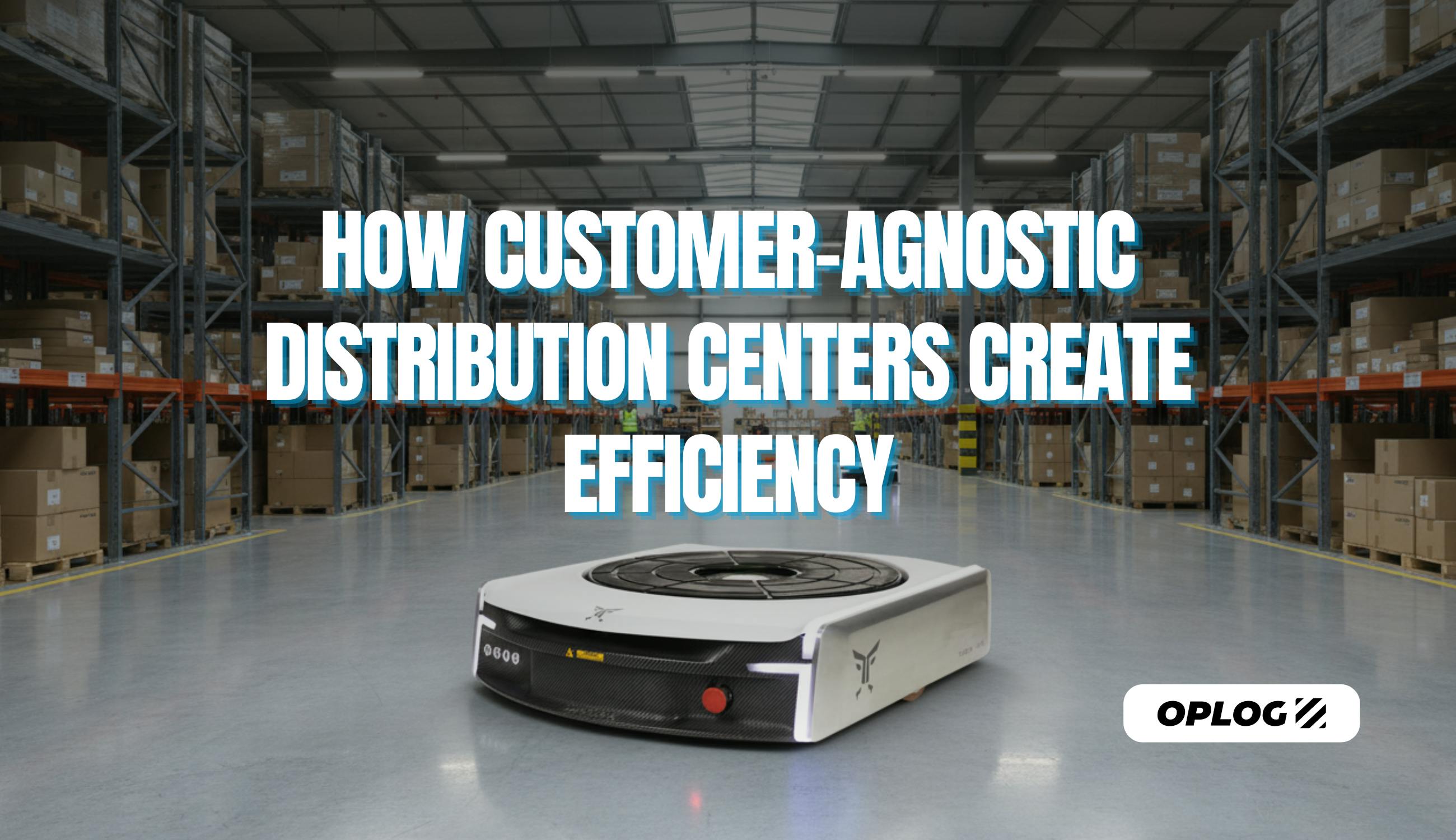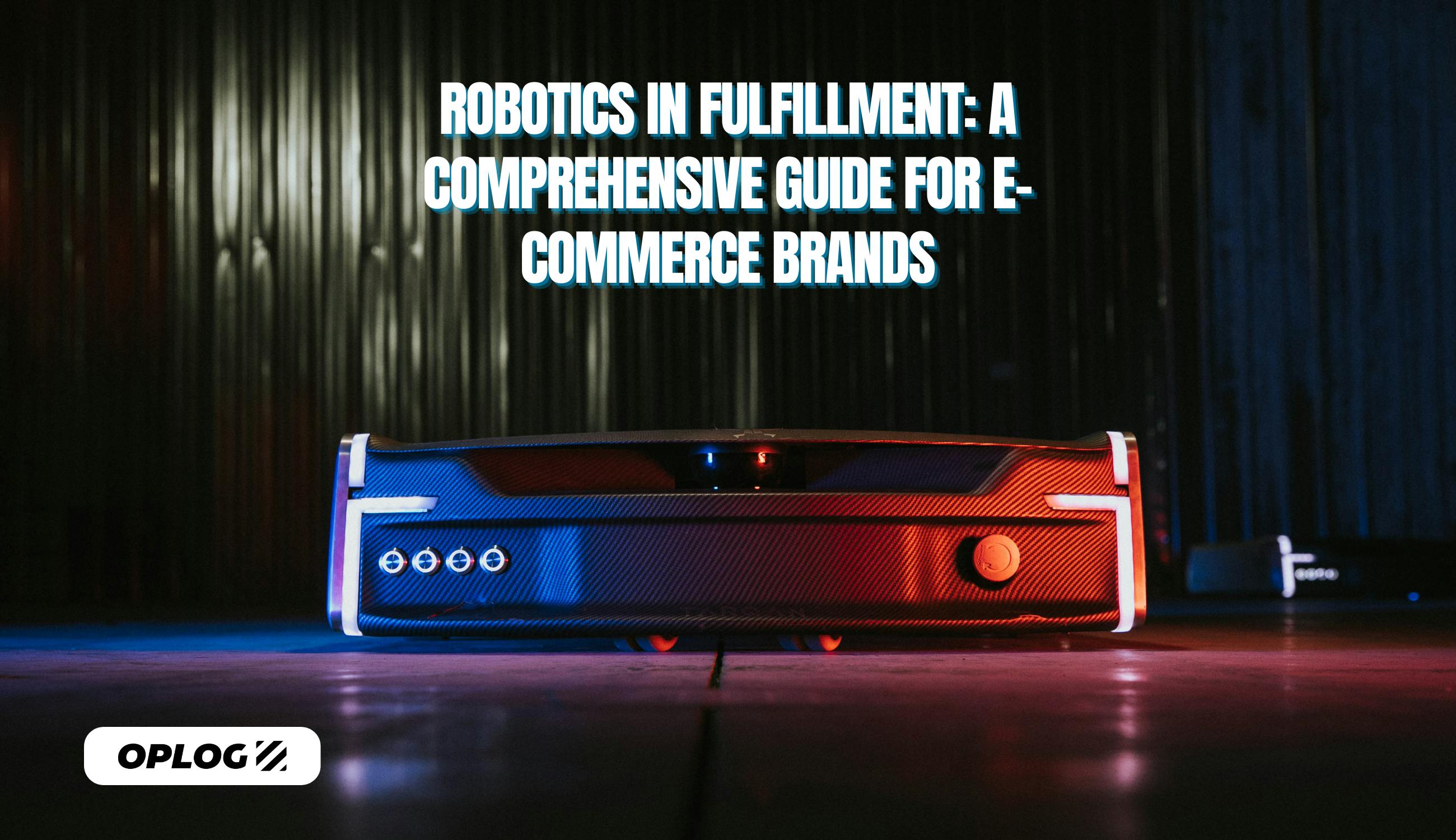7 Common Fulfillment Mistakes Turkish E-commerce Brands Make (And How to Avoid Them)
Turkey's e-commerce market has experienced remarkable growth, with online retail sales expected to reach unprecedented levels as digital adoption accelerates across the country. With 15 million Turkish households now receiving daily shipments and e-commerce penetration climbing toward 30% by 2025, the opportunities for Turkish brands are immense.
However, this rapid growth has exposed a critical gap: while customer expectations have evolved at lightning speed, many Turkish e-commerce brands are still operating with outdated fulfillment approaches that worked in smaller, slower markets but fail spectacularly at scale.
The cost of these fulfillment mistakes isn't just operational—it's existential. In a market where 80% of consumers won't shop with a retailer again after a bad delivery experience, and 90% prefer free one-day delivery, fulfillment excellence has become the ultimate competitive differentiator.
After analyzing hundreds of Turkish e-commerce operations and studying industry trends, we've identified seven critical fulfillment mistakes that consistently trip up growing brands. More importantly, we'll show you exactly how to avoid them.
1. Relying on Manual Order Processing Systems
The Mistake: Many Turkish e-commerce brands still depend on manual order processing, treating each order as an individual task requiring human intervention for picking, packing, and shipping coordination.
Why Turkish Brands Make This Mistake: Traditional business culture in Turkey often emphasizes personal touch and manual oversight. Additionally, many brands started small and never invested in automation as they scaled, assuming manual processes would continue to suffice.
The Real Cost: Manual order processing creates a bottleneck that becomes exponentially worse as order volumes increase. During peak seasons like Black Friday or local shopping festivals, manual systems collapse entirely. During high-volume periods, Turkish e-commerce brands experience significant operational challenges, with picking mistakes, shipping delays, and inventory discrepancies that can severely damage customer relationships and brand reputation.
How OPLOG Solves This: OPLOG's robotics-powered fulfillment infrastructure, anchored by our proprietary TARQAN robotic system, eliminates manual bottlenecks entirely. Our automated order processing handles thousands of orders simultaneously with 99.99% accuracy, automatically routing orders through optimized picking paths and coordinating seamless pack-and-ship operations.
Actionable Tip: If you're not ready for full automation, start by implementing basic order management software that can batch similar orders and create optimized picking lists. Even this simple step can reduce processing time by 40%.
2. Operating with Limited Inventory Visibility
The Mistake: Running fulfillment operations without real-time inventory visibility across all channels and locations, leading to overselling, stockouts, and disappointed customers.
Why Turkish Brands Make This Mistake: Many brands grew by selling on multiple platforms—Trendyol, Hepsiburada, their own website, and international marketplaces—without investing in unified inventory management. Each channel operates in isolation, creating blind spots.
The Real Cost: Limited inventory visibility causes a cascade of problems. Brands either overstock (tying up cash in dead inventory) or understock (losing sales to stockouts). Inventory blind spots create significant financial losses for Turkish e-commerce brands through lost sales, tied-up capital, and operational inefficiencies, not counting the reputational damage from cancelled orders and disappointed customers.
How OPLOG Solves This: Our advanced inventory management system provides real-time visibility across all sales channels and fulfillment locations. Machine learning algorithms predict demand patterns specific to Turkish market dynamics, automatically adjusting stock levels and triggering reorder points before stockouts occur.
Actionable Tip: Implement ABC inventory analysis immediately. Categorize your products by sales velocity and focus on maintaining 99% availability for your A-category items, which typically represent 80% of your revenue.
3. Using Rigid, Fixed-Capacity Fulfillment Models
The Mistake: Committing to fixed warehousing contracts and inflexible fulfillment arrangements that can't adapt to seasonal fluctuations or unexpected growth spurts.
Why Turkish Brands Make This Mistake: Traditional Turkish business practices favor long-term, relationship-based contracts. Many brands lock into annual warehouse leases or fixed-capacity fulfillment agreements thinking they're securing better rates, but they're actually trading flexibility for false savings.
The Real Cost: Turkey's e-commerce market experiences dramatic seasonal swings—Ramadan shopping, summer tourism spikes, and year-end festivities can triple order volumes overnight. Brands with rigid capacity models either pay for unused space during slow periods or scramble desperately during peaks, often paying premium rates for emergency capacity.
How OPLOG Solves This: Our pay-as-you-grow model provides ultimate flexibility with no fixed commitments. Scale up during Ramazan Bayramı without long-term contracts, then scale back during quieter periods. You only pay for the capacity you actually use, when you use it.
Actionable Tip: Calculate your true capacity utilization rate. If you're consistently underutilizing your committed capacity throughout the year, flexible solutions will save you money while improving service levels.
4. Underestimating Cross-Border Compliance Complexity
The Mistake: Treating international shipping as a simple extension of domestic fulfillment without understanding the complexity of customs regulations, tax implications, and changing compliance requirements.
Why Turkish Brands Make This Mistake: Turkey's strategic position between Europe and Asia makes international expansion seem natural and straightforward. However, recent regulatory changes—like Turkey's 2024 adjustment of de minimis rules from €150 to €30—caught many brands off guard.
The Real Cost: Compliance mistakes in cross-border e-commerce can be devastating. Orders get stuck in customs, customers face unexpected duties, and brands bear the cost of returns and customer service nightmares. Major international brands like Nike suspended their online sales in Turkey following the August 2024 customs regulation changes, demonstrating how compliance complexity can force brands to halt operations entirely rather than risk regulatory violations.
How OPLOG Solves This: Our cross-border fulfillment expertise includes automated customs documentation, real-time duty calculation, and compliance monitoring across all major international markets. We handle regulatory complexity so you can focus on growth.
Actionable Tip: Before expanding internationally, create a customs compliance checklist for each target market. Partner with local logistics experts who understand specific country requirements rather than trying to navigate complex regulations alone.
5. Neglecting Peak Season Capacity Planning
The Mistake: Failing to prepare adequately for predictable peak seasons, treating high-volume periods as surprises rather than planned events requiring specific operational strategies.
Why Turkish Brands Make This Mistake: Many Turkish e-commerce brands experience significant challenges during peak seasons, with the sector facing persistent logistics and last-mile delivery challenges that become more pronounced during high-demand periods like Ramadan and holiday seasons.
The Real Cost: Poor peak season planning can severely impact brand reputation during critical shopping periods. Turkey's e-commerce sector continues to face logistics and delivery challenges, particularly during high-demand periods, with companies struggling to meet increased consumer expectations for fast and reliable delivery.
How OPLOG Solves This: Our elastic infrastructure automatically scales to handle peak season demands without advance planning requirements. Machine learning algorithms predict capacity needs based on historical data and current trends, ensuring seamless fulfillment even during unexpected demand spikes.
Actionable Tip: Create a peak season fulfillment playbook 90 days before major shopping periods. Include specific metrics for success, contingency plans for various scenarios, and clear communication protocols with all stakeholders.
6. Ignoring Temperature-Controlled Logistics Needs
The Mistake: Overlooking the growing demand for temperature-sensitive product fulfillment, particularly in cosmetics, pharmaceuticals, and specialty food categories that require specific environmental conditions.
Why Turkish Brands Make This Mistake: Turkey's diverse climate and growing pharmaceutical industry create significant cold chain needs, but many brands don't realize the importance until products arrive damaged or ineffective due to temperature exposure during fulfillment and shipping.
The Real Cost: Temperature-sensitive products represent some of the highest-margin categories in e-commerce, but poor handling destroys both product value and customer trust. Turkish beauty brands report product return rates of up to 35% when temperature control isn't properly managed throughout the fulfillment chain.
How OPLOG Solves This: Our temperature-controlled fulfillment capabilities ensure products maintain optimal conditions from storage through final delivery. Specialized packaging, climate-controlled facilities, and cold chain shipping partnerships protect product integrity and your brand reputation.
Actionable Tip: Audit your product catalog to identify temperature-sensitive items. Even if they represent a small percentage of SKUs, they often contribute disproportionately to profit margins and are worth specialized handling.
7. Choosing Cost Over Scalability in Fulfillment Partnerships
The Mistake: Selecting fulfillment partners based solely on current pricing rather than evaluating long-term scalability, technology capabilities, and strategic alignment with growth objectives.
Why Turkish Brands Make This Mistake: In Turkey's competitive e-commerce landscape, brands often feel pressure to minimize costs wherever possible. This short-term thinking leads them to choose cheaper fulfillment options that lack the technology and flexibility needed for sustainable growth.
The Real Cost: Cheap fulfillment partners often lack the technology infrastructure, capacity flexibility, and operational sophistication needed to support rapid growth. Brands outgrow these providers quickly, forcing expensive and disruptive migrations to new fulfillment solutions—often during critical growth phases.
How OPLOG Solves This: Rather than competing solely on price, OPLOG provides value through advanced technology, flexible capacity, and a partnership approach focused on your long-term success. Our robotics-powered infrastructure grows with you, eliminating the need for disruptive fulfillment changes as you scale.
Actionable Tip: When evaluating fulfillment partners, create a total cost of ownership model that includes technology capabilities, scalability options, and switching costs. The cheapest option today is rarely the most cost-effective choice over time.
The Path Forward: Building Fulfillment That Fuels Growth
Turkish e-commerce brands have an unprecedented opportunity. The market is growing rapidly, consumer adoption is accelerating, and Turkey's strategic geographic position offers natural advantages for both domestic and international expansion.
But success in this environment requires fulfillment operations that are built for the future, not limited by the past. The brands that thrive will be those that embrace automation, prioritize flexibility, and partner with fulfillment providers who understand both the Turkish market's unique characteristics and the global standards customers now expect.
OPLOG helps Turkish e-commerce brands avoid these common fulfillment pitfalls by replacing manual processes with robotics, providing real-time inventory visibility, and offering flexible capacity with no fixed commitments. Whether you're scaling domestically or preparing for international growth, OPLOG gives you the operational backbone to support consistent, high-quality fulfillment that turns customers into advocates.
Ready to transform your fulfillment operations? Let's discuss how OPLOG can help you avoid these costly mistakes and build fulfillment that scales with your ambitions.






